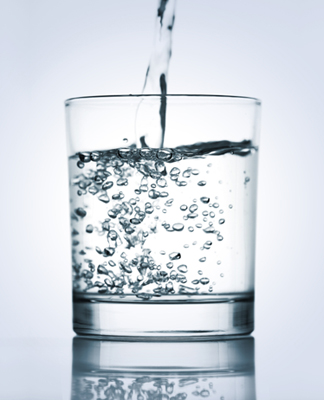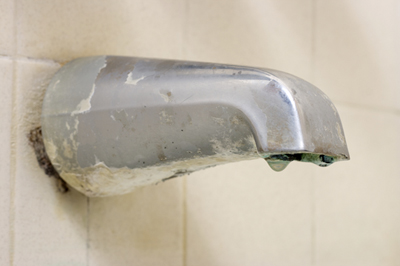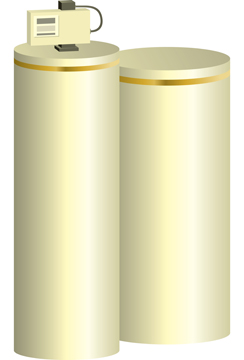
If your drinking glasses tend to be spotty after you wash them and your faucet or shower heads have a whitish, scaly buildup,
the water coming into your home is most likely hard. Hardness refers to the amount of minerals dissolved in the water. The more minerals present,
the harder the water. Conversely, water with fewer minerals is considered soft.
The minerals typically found in hard water are magnesium, calcium and sometimes bicarbonates and sulfates. These minerals
typically get into groundwater as it passes through rock and other underground formations. According to the Water Quality Research Council,
soft water has up to one “grain” of minerals per gallon. A grain is the amount of minerals equal to one grain of wheat. Very hard water has more
than 10 grains of minerals per gallon.
While hard water is usually considered more palatable than soft, its use can cause problems around the house. Hard water can leave
behind a film on glasses and dishes as well as bath surfaces and shower doors and walls. Clothes washed in hard water may still look a little dirty
and feel less soft. After washing in hard water, hair may seem dull and not quite clean. Soap used with hard water does not produce much lather, while
skin washed with soft water may seem more slippery because of an absence of soap scum.

Hard water can also cause problems with household appliances. Over time, the mineral residue it leaves behind can build up on
faucets and shower heads, potentially reducing flow. Researchers have also found the sediment hard water leaves behind can reduce the effectiveness
of water heaters since the minerals are a poor conductor of heat, according to the Texas AgriLife Extension. After a year-long test, heaters using
hard water contained from about 4 to nearly 40 pounds of sediment according to the Extension.
However, medical experts such as the World Health Organization have said there does not appear to be any convincing evidence
that water hardness causes health problems in humans. Instead, several studies have suggested that water hardness may protect against disease,
though the issue is being studied further.
Estimates are, as many as 85 percent of households in the United States have hard water. For those who wish to reduce some of
the problematic effects hard water has on appliances, water softeners are available that can treat some or all of the water coming into a home.
For instance, if you want to continue to drink and bathe in hard water, you can keep those lines free and just use the softener for water that
goes to water heaters, dish and clothes waters, and other such appliances.

Here are some suggestions for choosing a water softener, thanks to the AgriLife Extension:
-
Expect prices to range from about $400 to more than $18,000. Avoid both extremes. A reasonable price for a quality water
softener, installed, is about $600 to $800.
- Buy only from a reputable dealer. Be wary of door-to-door sales-people.
-
Decide on a system only after you have considered the cost of the equipment and its installation and have obtained
an approximation of operating costs. Expensive units are sometimes called "water treatment" systems, but may be only glorified softeners.
-
Check the warranty. Be sure you understand it. Warranties may be for only one year or a lifetime. Again,
avoid both extremes. A dependable warranty could be for 10 years on the tank and five years on the control valves.
-
If installation fees are included in the price, be sure that there are no further charges for bypassing
lawn and garden water systems, replenishing swimming pools, etc.
- Be certain that you understand the method and cost of recharging the system.
-
Ask dealers for names of customers. Check with these customers to learn if they are satisfied with the equipment
and service. Ask friends who have invested in water-softening equipment for advice.
